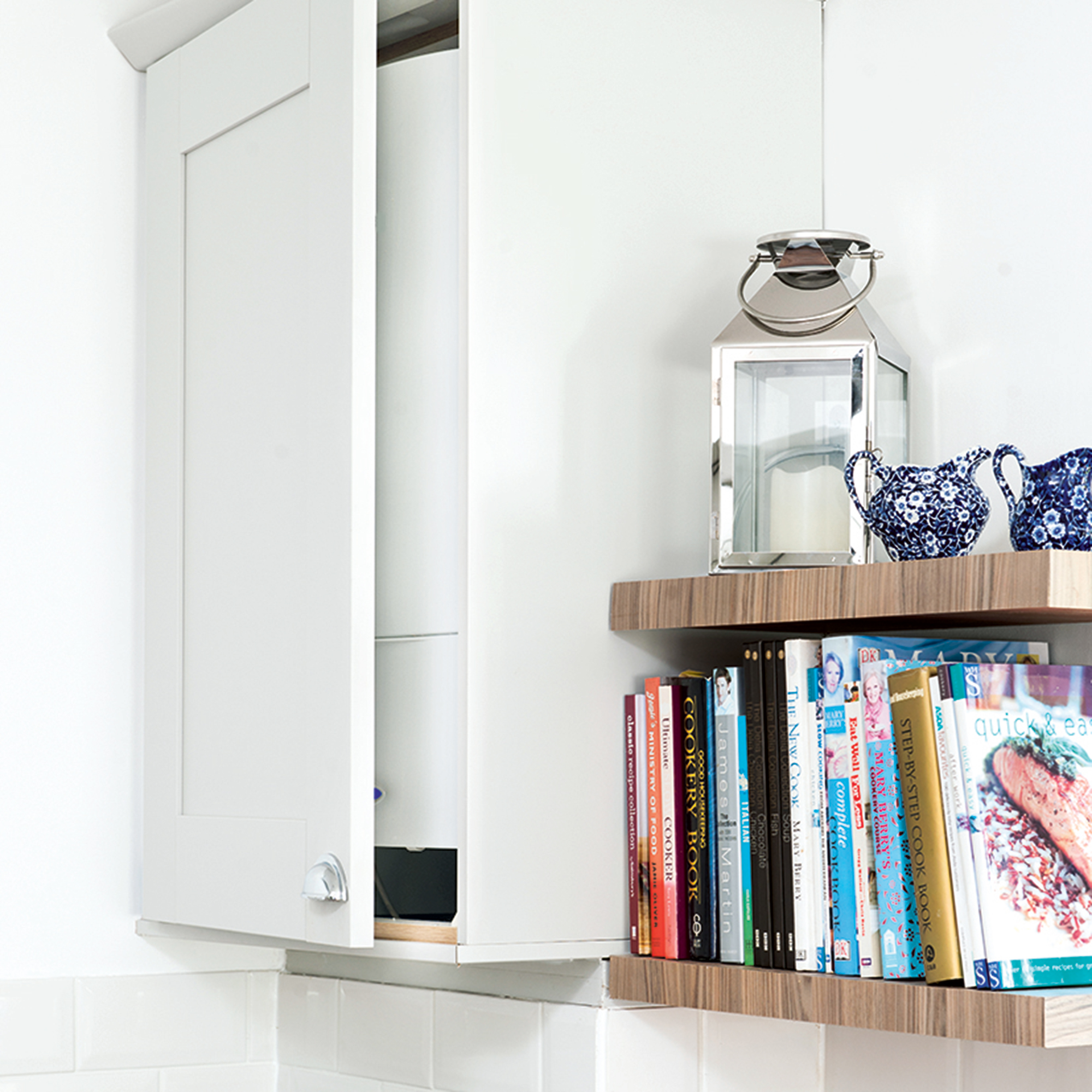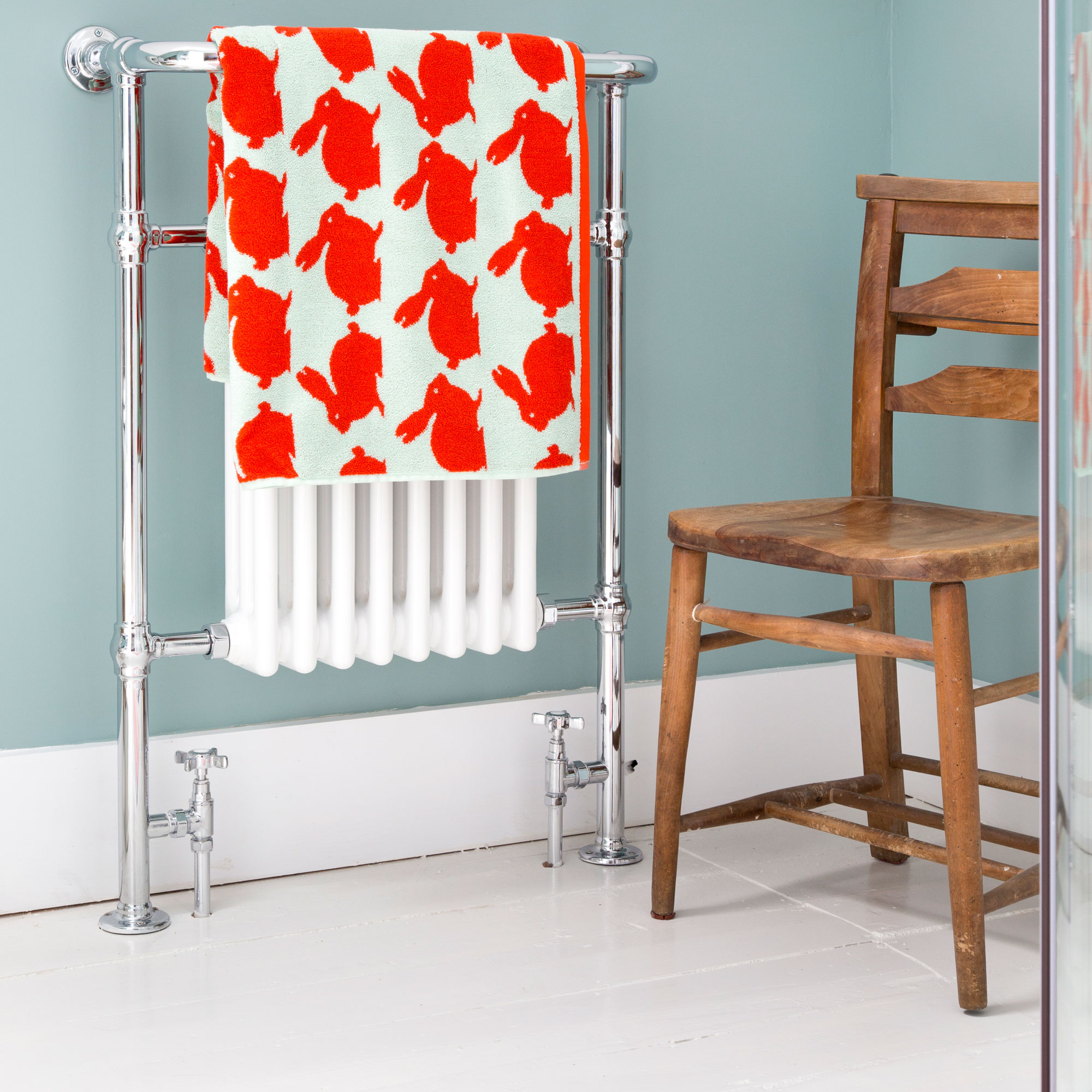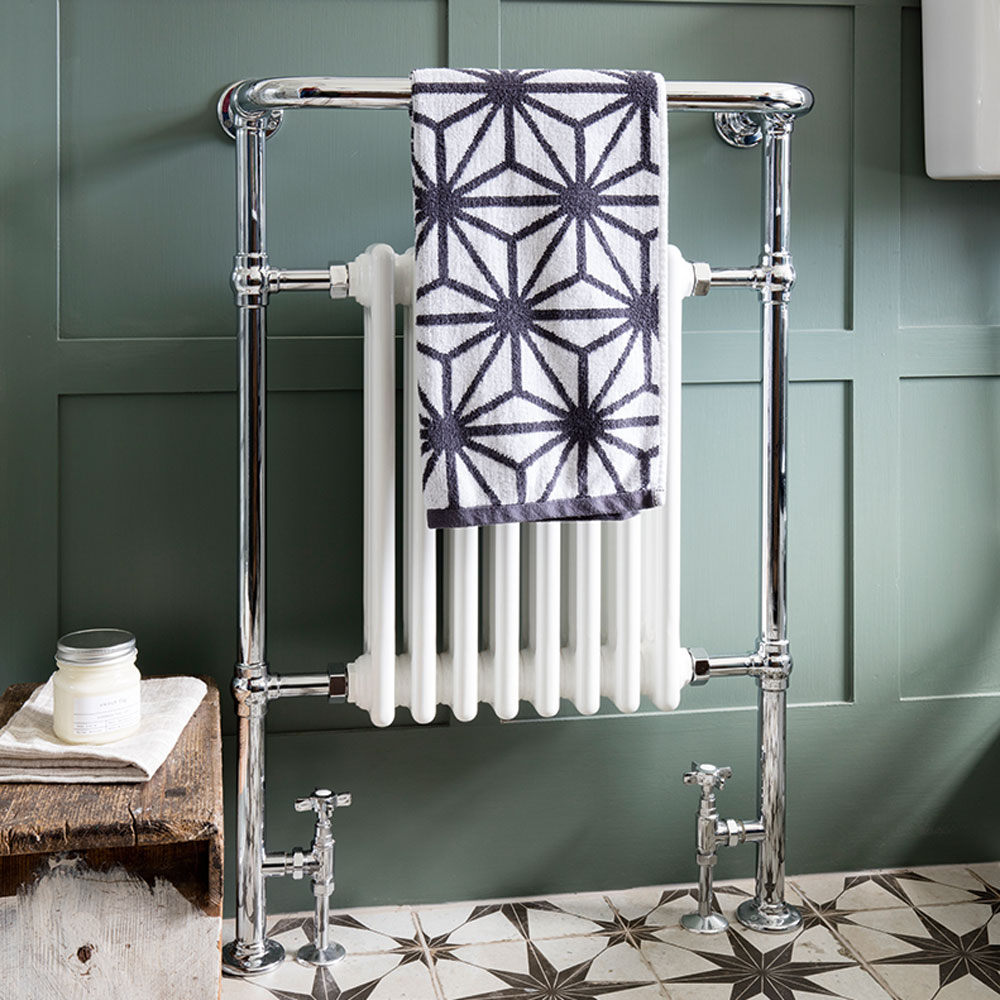How to lower a gas bill – 11 ways you can reduce costs and energy consumption
We outline some simple but practical steps you can take to keep your gas bill down


Millie Hurst
Spiralling energy prices are leaving many worried about how they'll get through the colder months. Although it's certainly not the solution to the cost of living crisis, learning how to lower a gas bill is something we can do.
It pays to understand how to save energy at home, and we can all find ways to make our homes more energy efficient. For example, there are apps that tell you exactly how much gas you're using and when, and you may even be able to cut costs by simply turning down the water temperature on your boiler.
How to reduce a gas bill
From July 2023 the energy price cap will make the average annual direct debit energy bill £2,074. The steps below (which don't include showering at the gym!) will help you with how to lower a gas bill, and you’ll also be playing a part in reducing the use of fossil fuels and the impacts of climate change.

1. Turn down your water temperature
Ever find the water that comes out of your taps is too hot to touch? Then you’re likely to be wasting gas and therefore not helping yourself with how to lower a gas bill. Try turning the water temperature on your boiler down a few degrees until you reach the optimum temperature.
You should have the option to lower the temperature of the hot water that comes out of your taps and shower heads which, over weeks and months, will help you save energy. If your hot water could be slightly lower, it's well worth turning the dial down a tad.
2. Only turn heating on as and when you need it
As well as knowing when you should turn your heating off for good, be aware that it's a myth that you should leave your heating on low all day. Whether you use a timer or manually turn it on, help with how to lower a gas bill by making sure your heating is only on when you need it or you'll be throwing money away.

3. Monitor with an app
Knowledge is power, and apps like Hugo Energy give you a clear display of how you use your gas on a daily basis. We also think having an app on your phone acts as a helpful reminder – seeing it day to day on your phone will keep bills top of mind.
Get the Ideal Home Newsletter
Sign up to our newsletter for style and decor inspiration, house makeovers, project advice and more.
'The app shows how often your boiler is coming on and if you can reduce the periods it comes on for and the amounts of times it comes on,' says Ben Dhesi from Hugo Energy. 'You can, for instance, only have the hot water come on once a day and then make sure you shower at that time of the day.'
4. Move your sofa away from the radiator
Keep warm air circulating by ensuring large pieces of furniture away from radiators. Otherwise, you'll have to heat your home for longer. 'Moving your sofa even six inches away from the radiator will allow heat to flow around the room much more effectively,' comments Holly Herbert from webuyanyhouse.
'This can save you up to 10% on your bills. The more space between furniture and radiators the better.'

5. Review your energy bills
Thankfully, switching energy providers is once again a possibility, so it's worth learning the difference between standard variable and fixed rate energy tariffs.
If you’re about to come out of a fixed-rate tariff contract, it could be worth considering how to switch energy suppliers or contacting your current supplier to make sure you’re on the best tariff for your home’s energy usage and comparing it with competitor providers.
6. Make sure your home is well insulated
‘Good insulation is key to making your home more energy efficient,’ says Brian Horne, Senior Insights & Analytics Consultant at Energy Saving Trust. ‘If you can maximise the thermal performance of your roof, walls, floor, windows and doors, that will give you the best possible foundation for becoming a low-energy household.’
‘When it comes to insulating your house, your roof should be the first place you look to,’ says Andrew Collinge, Heating Product Manager at BestHeating. He says this is because a roof can be responsible for more than 35& of home heat loss. 'Roof insulation is the cheapest and quickest way to stop heat escaping. And the material used for this purpose can even be installed by keen DIYers,’ he explains.
Around a third of the heat in an insulated home is lost through the walls according to the Energy Saving Trust. ‘Most homes in the UK have either solid walls that can be insulated from the inside or outside, or cavity walls, which have a gap that can be filled with insulation,’ says Brian from Energy Saving Trust.
To work out how to lower a gas bill he advises installing floor insulation too. ‘If you have a newer home, it will most likely have solid concrete floors, onto which you can add a layer of rigid insulation, whereas older homes with suspended timber floors can be insulated by fitting a layer of mineral wool under the floorboards,’ says Brian Horne.
For a quick fix, draught excluder tape, at Amazon, helps stop draughts coming in through windows and gaps between doors, and throwing down an extra rug or two will also help chilly rooms.

7. Don’t leave appliances on standby
There are lots of appliances that draw power even when they're on standby. Figures published by British Gas suggest that UK households waste an average of £30 a year powering appliances that they’re not even using. Whereas Energy Saving Trust believes you can save even more.
‘If you make sure that everything is switched off at the wall when you’ve finished with it you could save around £65 a year on your energy bills,’ says Brian Horne.
‘This sneaky energy usage is known as vampire power,’ says Andrew Collinge. ‘To combat this, you could invest in a standby saver, which is a simple solution to help you navigate the minefield of energy wastage. Plug all your appliances into a standby saver and then programme it to respond to a single remote control. It will also automatically cut the power to an appliance when it realises it has gone into standby mode.’
Tech can actually help with how to lower a gas bill here, too. Pick up an outlet like the Tapo Smart Plug, £9.49, Amazon, so you can switch power off to appliances wherever you are.
8. Keep heating systems maintained
Another way to work out how to lower your gas bill is a yearly service by a Gas Safe Registered engineer. Sticking to the recommended amount for how often your boiler should be serviced will ensure that it's working at maximum capacity. During a service, the engineer will check, clean and replace parts and catch any potential problems before the system breaks down.
‘Keeping a system maintained doesn’t just help lower a gas bill, it will keep it both safe and working efficiently,’ says Andrew Collinge. ‘An efficient boiler uses less energy to heat a house, which means regular services can help keep energy costs lower.’
‘It’s especially important to book in regular boiler services following a summer of infrequent use,' agrees Martyn Bridges, Head of Technical Communication and Product Management at Worcester Bosch. 'Not having your boiler serviced could lead to faults, higher energy bills, and your warranty ending early.’

9. Invest in a smart thermostat
A smart thermostat, available on Amazon, will allow you to operate your heating system remotely via an app on your mobile phone or tablet. Some will save your daily routine and work out the best usage for you, others will alter your settings depending on the weather. ‘Some smart thermostats can also adjust the temperature of your boiler output to make sure it’s always operating at optimum efficiency,’ says Brian Horne.
Sam Jump, Product Manager at Wunda Group even recommends teaming a smart thermostat with smart thermostatic radiator valves so you can remotely control exactly what rooms in your house are heated. ‘When utilised properly, it’s one of the cheapest and most convenient ways to improve energy ratings in your home, cutting heating bills and reducing CO2 emissions,’ says Sam.
10. Replace your old boiler
If your boiler is more than 12-15 years old, is expensive to run and is breaking down regularly, it might be time to consider replacing your boiler. ‘On average, over half of our annual household energy bills come from heating our homes,’ says Victoria Billings, Director of Marketing at Worcester Bosch. That’s why having an efficient and cost-effective heating system is vital, both for how to reduce a gas bill and for the environment.
‘While a new boiler can be expensive (usually upwards of £1,000), they are a good investment as a newer model will significantly cut your bills,’ says Andrew Collinge. Heating company Vaillant agrees, stating a 30 per cent reduction in bills for homeowners who invest in one of its energy-efficient boilers.
‘Modern boilers are all condensing boilers, which have a large heat exchanger. This means more heat is recovered and cooler gases are sent up the flue, making it more efficient,’ explains Andrew Collinge. ‘To put it into numbers, new A-rated boilers (any boiler over a 90% efficiency) can give you 90p or more worth of heat for every £1 you put in.'
'In contrast, this is 60-80p for every £1 in older models. Replacing your old boiler also has benefits for the environment. This is because a more efficient boiler will use less fuel to heat your house, reducing your carbon footprint,’ he says.
11. Lower your thermostat

According to Moneysavingexpert.com, for each degree you cut the thermostat you can expect to cut your energy bills by around four per cent. That's about £150 a year on average for a typical home.
‘The World Health Organisation says that 18 degrees is enough for healthy adults, with slightly higher temperatures needed for the very old or young. So consider popping on a jumper at home and seeing what temperature your household is comfortable at,’ says Will Lynn at Moneysavingexpert.com.
‘If you’re wondering about the most efficient way to heat your home and how to lower a gas bill, it’s best to tailor it to your lifestyle,' agrees Martyn from Worcester Bosch. 'Of course, due to the government’s current pandemic advice, we are all currently at home for the majority of our day. So think about keeping your home at a comfortable temperature for you and your family, but remember that you can wear layers too to save cash in the long run.'
If you're struggling to pay, call your energy company, as there is energy bill help available depending on your situation.

Sophie Vening is a freelance journalist and editor with more than 16 years’ experience writing about homes and properties. She’s worked for some of the UK’s leading interiors, self-build and property titles including, Grand Designs, Ideal Home, House Beautiful, Build It, The Metro Homes & Property and The Evening Standard Homes & Property.
She enjoys writing about complex issues in an easy-to-understand way.
- Millie HurstSenior Content Editor
-
 Will a conservatory add value to your home and how can you maximise it?
Will a conservatory add value to your home and how can you maximise it?This is what the pros say
By Amy Reeves
-
 I’ve been looking for a new signature scent for my home and The White Company's new fragrance is the exact summer holiday smell I needed
I’ve been looking for a new signature scent for my home and The White Company's new fragrance is the exact summer holiday smell I neededSantorini smells fresh, summery and sophisticated
By Kezia Reynolds
-
 How to remove algae from garden walls in five steps – and the cleaning product experts rave about for tackling it fast
How to remove algae from garden walls in five steps – and the cleaning product experts rave about for tackling it fastExperts share their top tips for getting garden walls algae-free
By Katie Sims
-
 You can claim back over £300 a year from HMRC if you work from home - here’s how to check if you’re eligible
You can claim back over £300 a year from HMRC if you work from home - here’s how to check if you’re eligibleWhen it comes to saving, every little helps
By Kezia Reynolds
-
 Experts have revealed the best day to renew your home insurance policy - you’ll want to do it sooner rather than later
Experts have revealed the best day to renew your home insurance policy - you’ll want to do it sooner rather than laterDon't leave this task at the bottom of your to do list
By Kezia Reynolds
-
 Is a variable rate mortgage ever a good idea? Experts weigh in
Is a variable rate mortgage ever a good idea? Experts weigh inOur money expert explains what a variable rate mortgage is, who they can be good for, and the pros and cons of this kind of mortgage
By Samantha Partington
-
 I’m a first-time buyer, what are my chances of getting a mortgage right now?
I’m a first-time buyer, what are my chances of getting a mortgage right now?And what you can do to increase your odds
By Rachel Wait
-
 Should you ever pay above the asking price for a home?
Should you ever pay above the asking price for a home?Our money expert explains whether you should ever pay over the asking price for a home, especially if house prices fall as predicted
By Samantha Partington
-
 Should I fix my mortgage and how long should I fix for?
Should I fix my mortgage and how long should I fix for?We speak to the experts to find out whether you should fix your mortgage and how long for as well as the impact further interest changes could have on your decision
By Samantha Partington
-
 We put your mortgage questions to two leading experts, here's what they said
We put your mortgage questions to two leading experts, here's what they saidAs mortgage panic continues, we've answered the most common questions - from when mortgage rates will come down, to when you actually have to pay stamp duty
By Samantha Partington
-
 'My mortgage is set to skyrocket - what should I do?' 5 potential solutions from a money expert
'My mortgage is set to skyrocket - what should I do?' 5 potential solutions from a money expertIf you're facing higher mortgage costs, our money expert explains various courses of action you could take to ease the pressure
By Samantha Partington